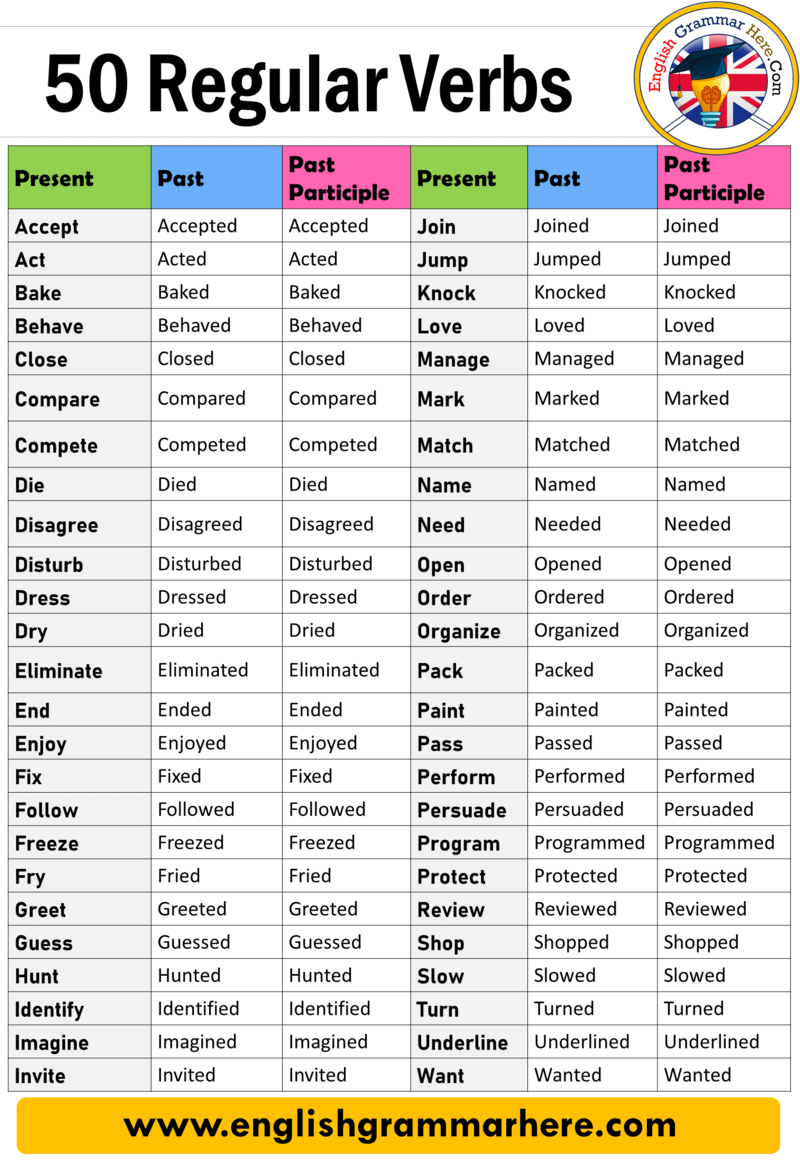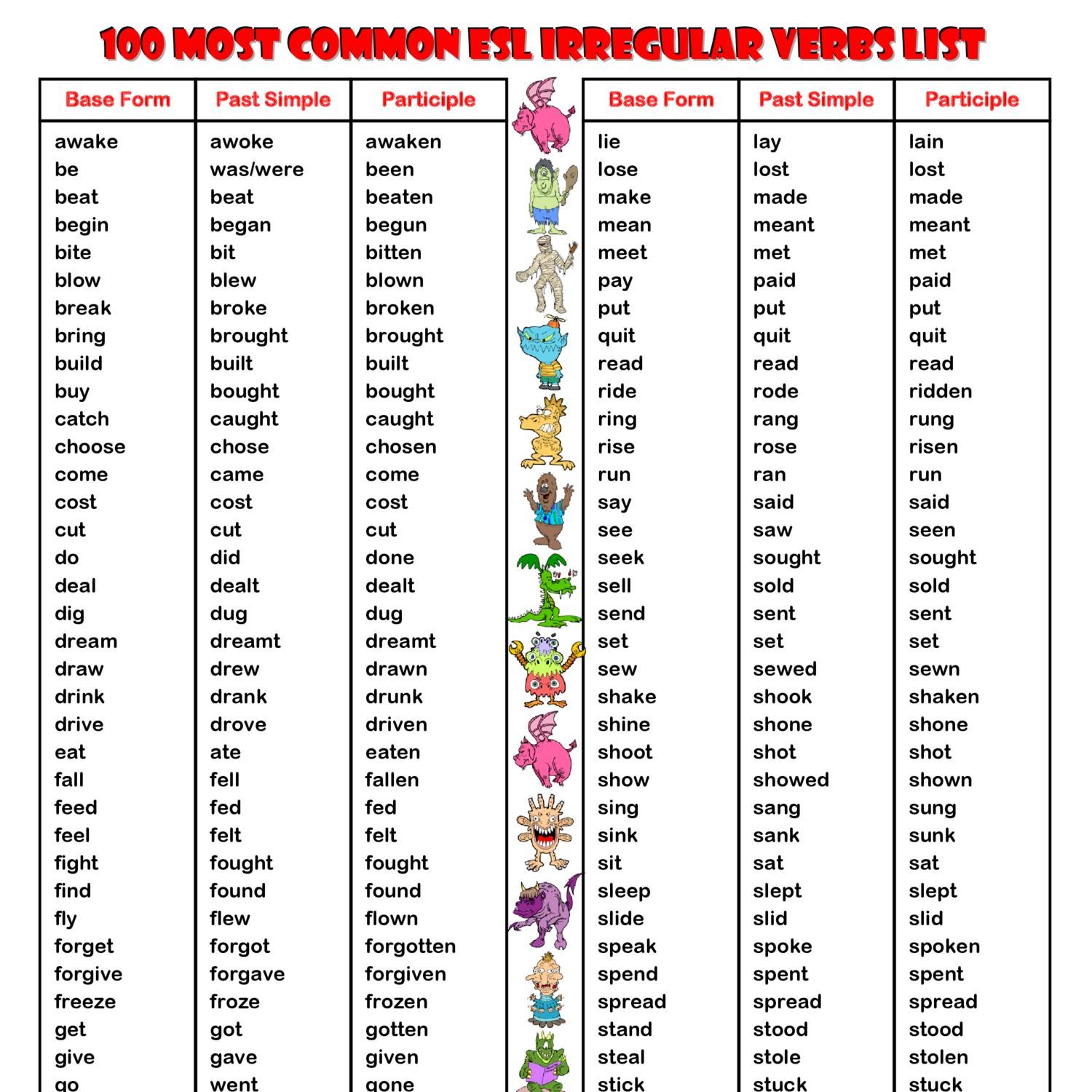Have you ever felt like verbs are the elusive, ever-changing stars of the English language, twinkling just out of reach of your understanding? Perhaps you find yourself struggling to differentiate between different verb tenses or simply feel overwhelmed by the vast array of verbs in the English language. Rest assured, you’re not alone! Verbs are the very heart of any sentence, conveying action, state of being, and even the passage of time. They are the building blocks that connect subjects to objects and bring our words to life.

Image: qleropearl.weebly.com
But fear not, aspiring language wizards! This comprehensive guide will equip you with the knowledge and tools you need to conquer the world of verbs, one verb at a time. We’ll delve into the intricate details of verb classification, tense, mood, and more, revealing the secrets of crafting grammatically sound and impactful sentences.
The World of Verbs: A Quick Dive
Defining Verbs: The Action Words
At their core, verbs are the action words of a sentence. They describe what a subject is doing or being. For example, in the sentence “The dog **chased** the ball,” the verb “chased” tells us the action being performed by the dog. But verbs are not limited to physical actions; they also describe states of being, emotions, and mental processes. Consider the sentence “She **feels** happy”; “feels” is the verb conveying an emotional state.
Types of Verbs: A Comprehensive Overview
The world of verbs is anything but simple! There’s a whole spectrum of verb types, each with its own nuances and function. Here’s a breakdown of some of the most common types:
- Action verbs: These verbs depict physical or mental actions. Examples: run, jump, think, write.
- Linking verbs: These verbs connect a subject to a predicate noun or adjective, explaining the subject’s state of being. Examples: am, is, are, was, were, seem, become, appear.
- Transitive verbs: These verbs require a direct object to complete their meaning. Examples: throw, kick, eat, read.
- Intransitive verbs: These verbs do not need a direct object to make sense. Examples: sleep, cry, laugh, swim.
- Auxiliary verbs: These verbs “help” other verbs form various tenses, aspects, and moods. Examples: have, be, do, will, can, may.
- Modal verbs: These verbs express possibility, obligation, permission, or ability. Examples: can, could, may, might, must, should, will, would.

Image: mungfali.com
Verb Tenses: Unlocking the Time Dimension
Verb tenses tell us when the action or state of being occurs. The English language boasts a rich tapestry of tenses, each capturing a specific point in time. Here’s a look at some key tenses:
- Present tense: describes actions happening now. Example: “She **sings** beautifully.”
- Past tense: describes actions that happened in the past. Example: “He **played** the guitar yesterday.”
- Future tense: describes actions that will happen in the future. Example: “They **will travel** to Italy next month.”
- Present continuous tense: describes actions happening now and continuing. Example: “She **is writing** a novel.”
- Past continuous tense: describes actions that were happening in the past at a specific time. Example: “He **was reading** a book when I called him.”
Verb Moods: Expressing Attitudes and Intent
Verb moods tell us the speaker’s attitude or intention. There are three main verb moods in English:
- Indicative mood: used for statements of fact or opinion. Example: “The sun **rises** in the east.”
- Imperative mood: used for commands or requests. Example: “**Close** the door.”
- Subjunctive mood: used to express wishes, suggestions, or hypothetical situations. Example: “I **wish** I **could** fly.”
The Importance of Verb Forms: A Deeper Dive
Verb forms are crucial for constructing accurate and grammatically correct sentences. The form of a verb changes depending on its tense, mood, and person (first, second, or third). Understanding these nuances is essential for clear and effective communication.
Mastering Verbs Through Practice and Resources
Theory is great, but ultimately, it’s practice that truly solidifies your understanding of verbs. There are many resources out there to help you on your journey, from online tutorials to comprehensive grammar books. Make it a habit to actively analyze sentences and identify the verbs, their type, tense, and mood. Engaging with language in this way allows you to understand the intricacies of verb use and master your command of the English language.
Tips for Mastering Verbs:
Here are some practical tips to elevate your verb skills:
- Read extensively: The more you read, the more naturally you’ll absorb the proper usage of verbs in different contexts. Pay attention to the subtle differences in verb forms and tenses employed by authors.
- Practice writing: Write daily, even if it’s just a journal entry or a short story. The act of writing will solidify your knowledge of verbs and help you recognize common grammatical errors.
- Seek feedback: Share your writing with a teacher, friend, or online writing community. Constructive feedback can shed light on your verb usage and help you improve.
- Use verb conjugation charts: These charts provide a concise reference for understanding verb forms throughout various tenses, moods, and persons. They can be a valuable tool for quick and easy reference.
- Explore online grammar quizzes: Websites like Grammarly and ProWritingAid offer interactive quizzes that test your understanding of verb usage. These quizzes provide engaging practice and immediate feedback, identifying areas where you can improve.
Frequently Asked Questions: Your Verb Queries Answered
Let’s address some common queries about verbs:
Q: What are the different kinds of verb tenses in English?
A: English verbs have 12 core tenses, representing different points in time and aspects of action. These include the simple present, simple past, simple future, present continuous, past continuous, present perfect, past perfect, future perfect, present perfect continuous, past perfect continuous, future perfect continuous, and future continuous tenses.
Q: What is a verb phrase?
A: A verb phrase is a group of words that work together as a unit to convey an action or state of being. It includes the main verb and any helping verbs that modify it. For example, in the sentence “She **is going to be happy**,” the verb phrase is “is going to be happy.”
Q: How do I know when to use the subjunctive mood?
A: The subjunctive mood is used in specific situations, often involving hypothetical statements, wishes, or suggestions. It typically involves a change in the verb form. Here are some common indicators of the subjunctive mood:
- After “it is important,” “it is necessary,” “it is recommended,” etc.
- In clauses beginning with “if,” “though,” “although,” “even if,” “even though,” etc., when expressing a hypothetical situation.
- In clauses expressing a wish or desire.
The subjunctive mood can be a bit tricky, but with practice, it becomes more intuitive!
List Of Verbs In English Pdf
Conquering Verbs: Your Path to Mastery Begins Now
Verbs are the lifeblood of the English language, and understanding them is essential for crafting powerful and meaningful communication. By delving into their various types, tenses, moods, and forms, you gain a deeper appreciation for the nuances of the language. But remember, theory alone isn’t enough; practice is key! Engage with verbs through reading, writing, and targeted exercises.
Are you ready to embark on this journey of verbal mastery? We’ve provided you with the tools, tips, and resources to get started.






